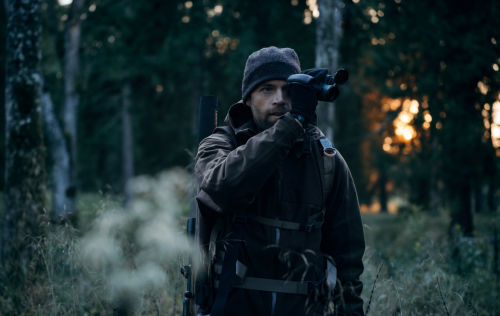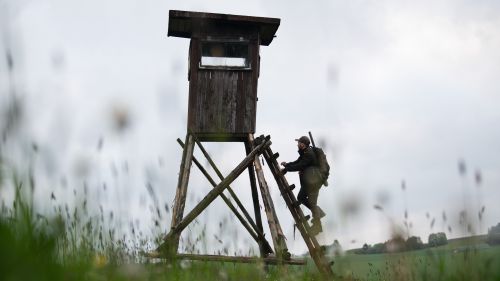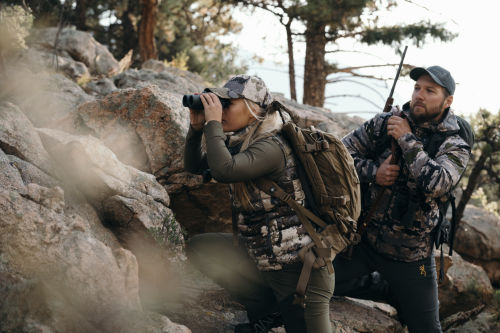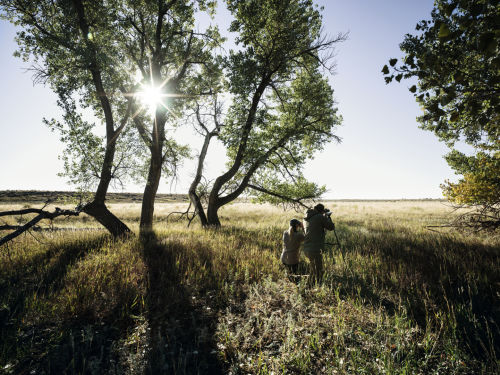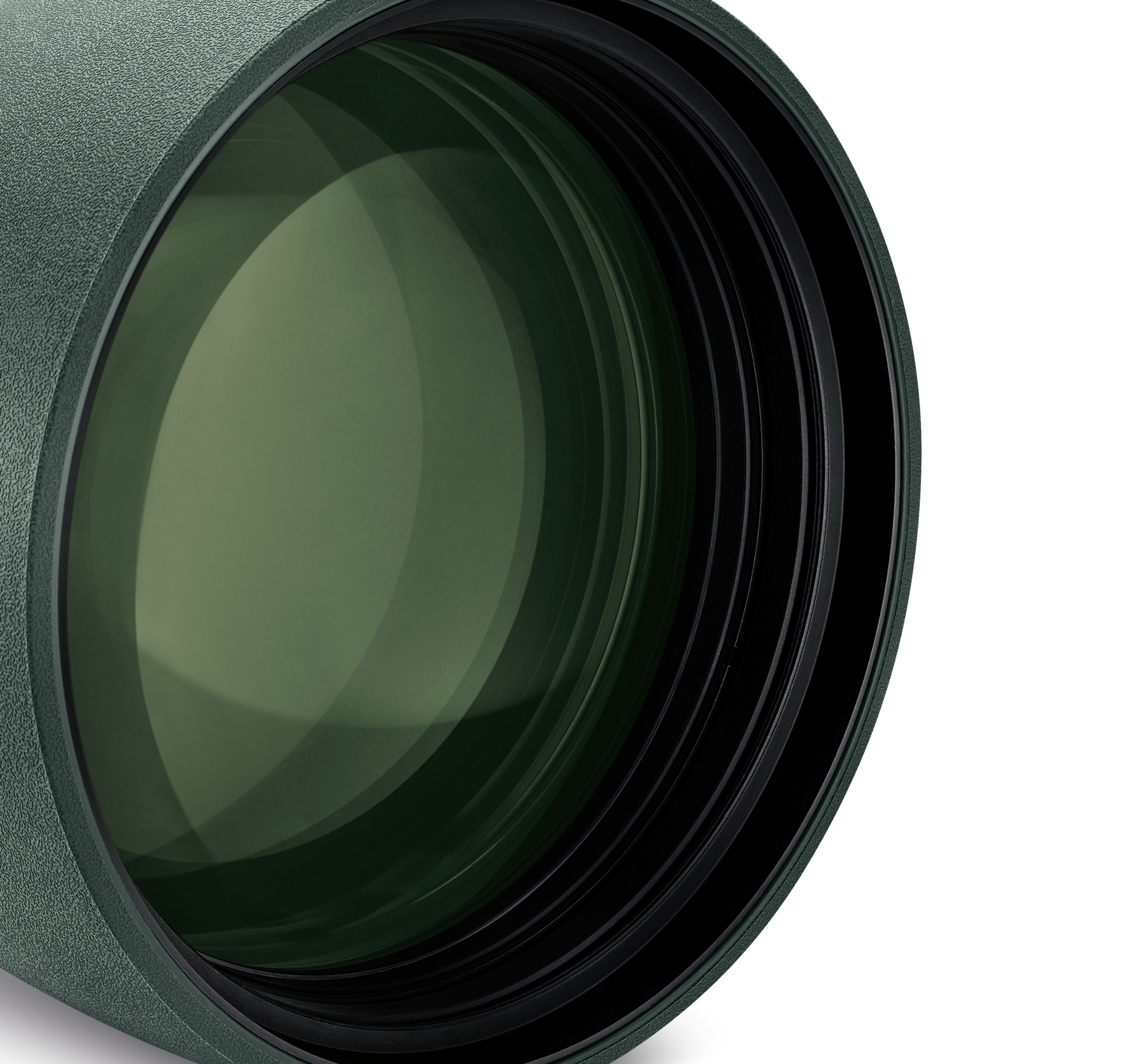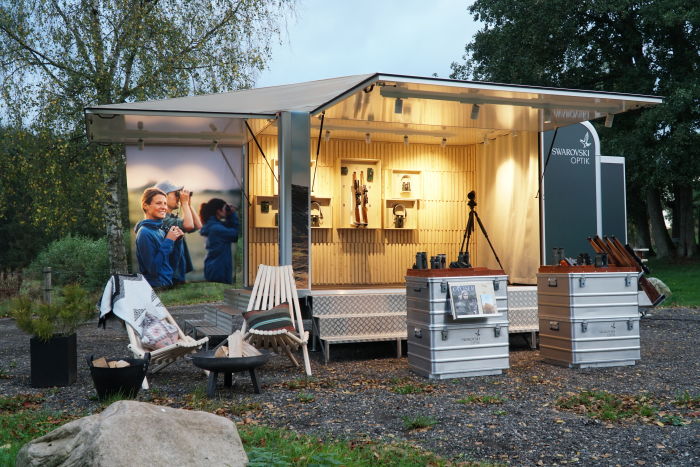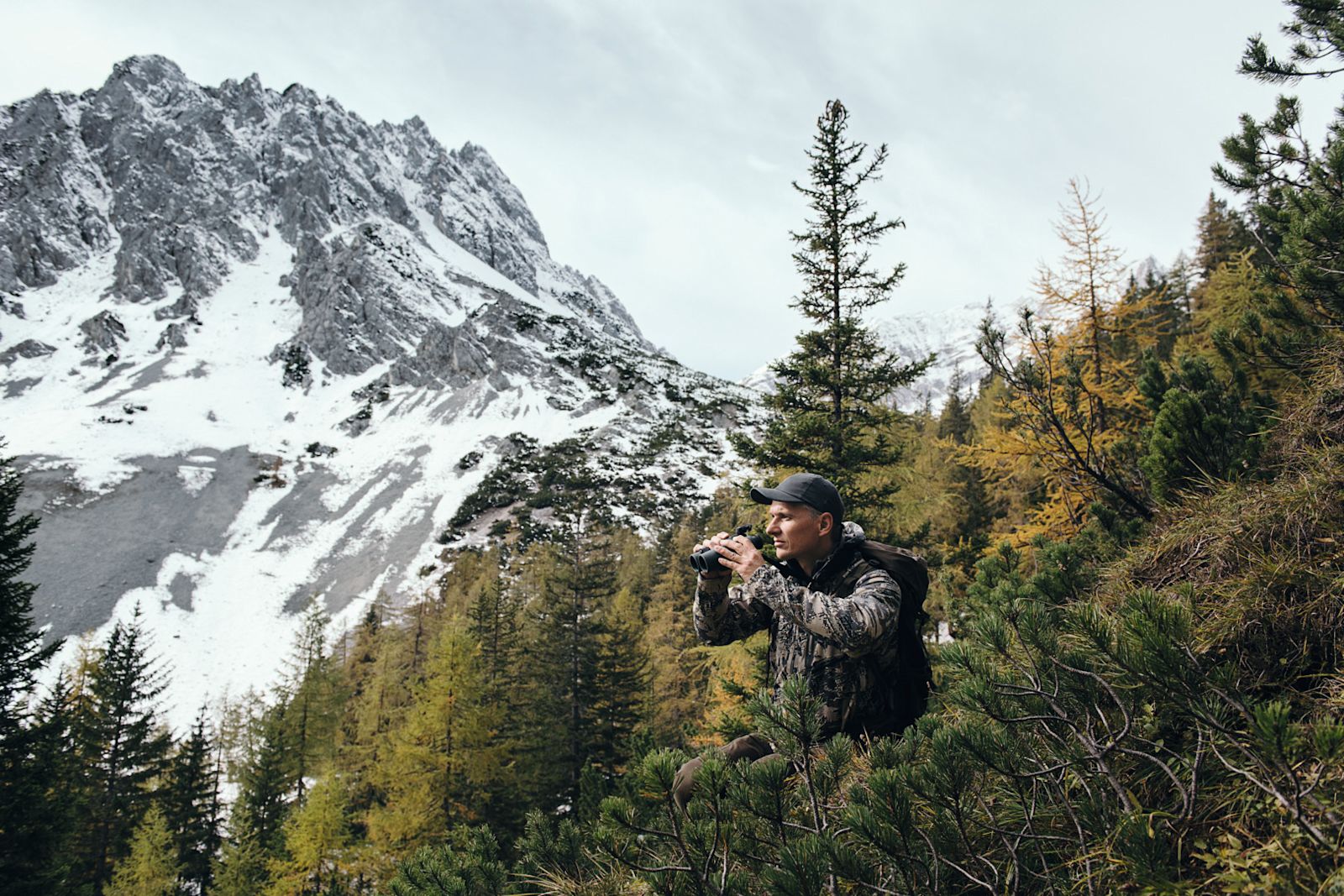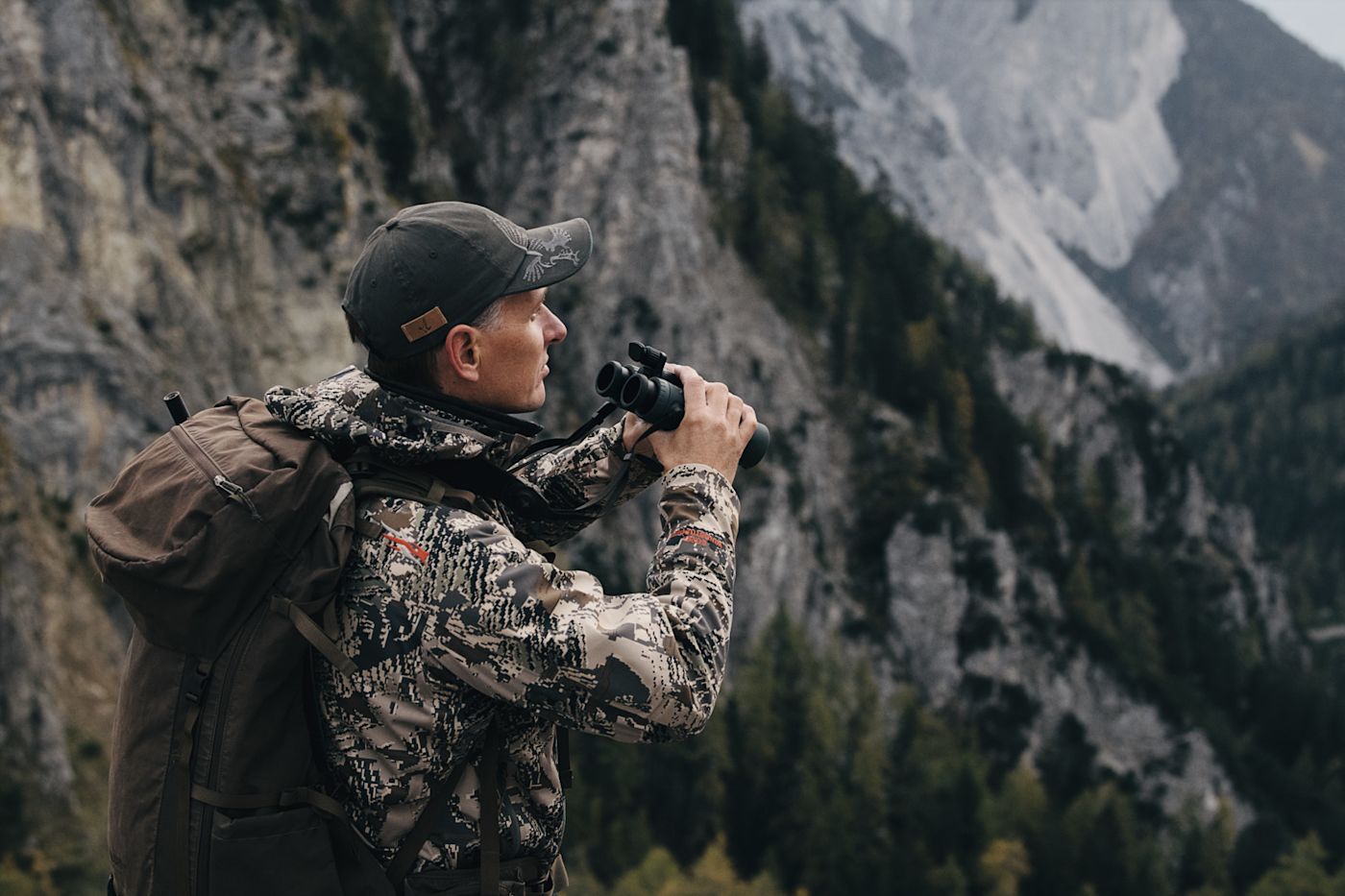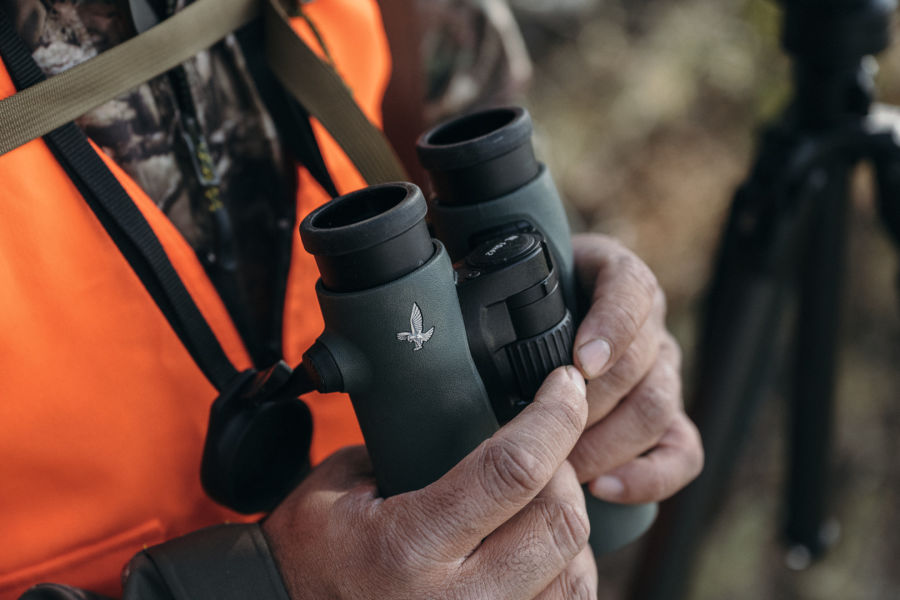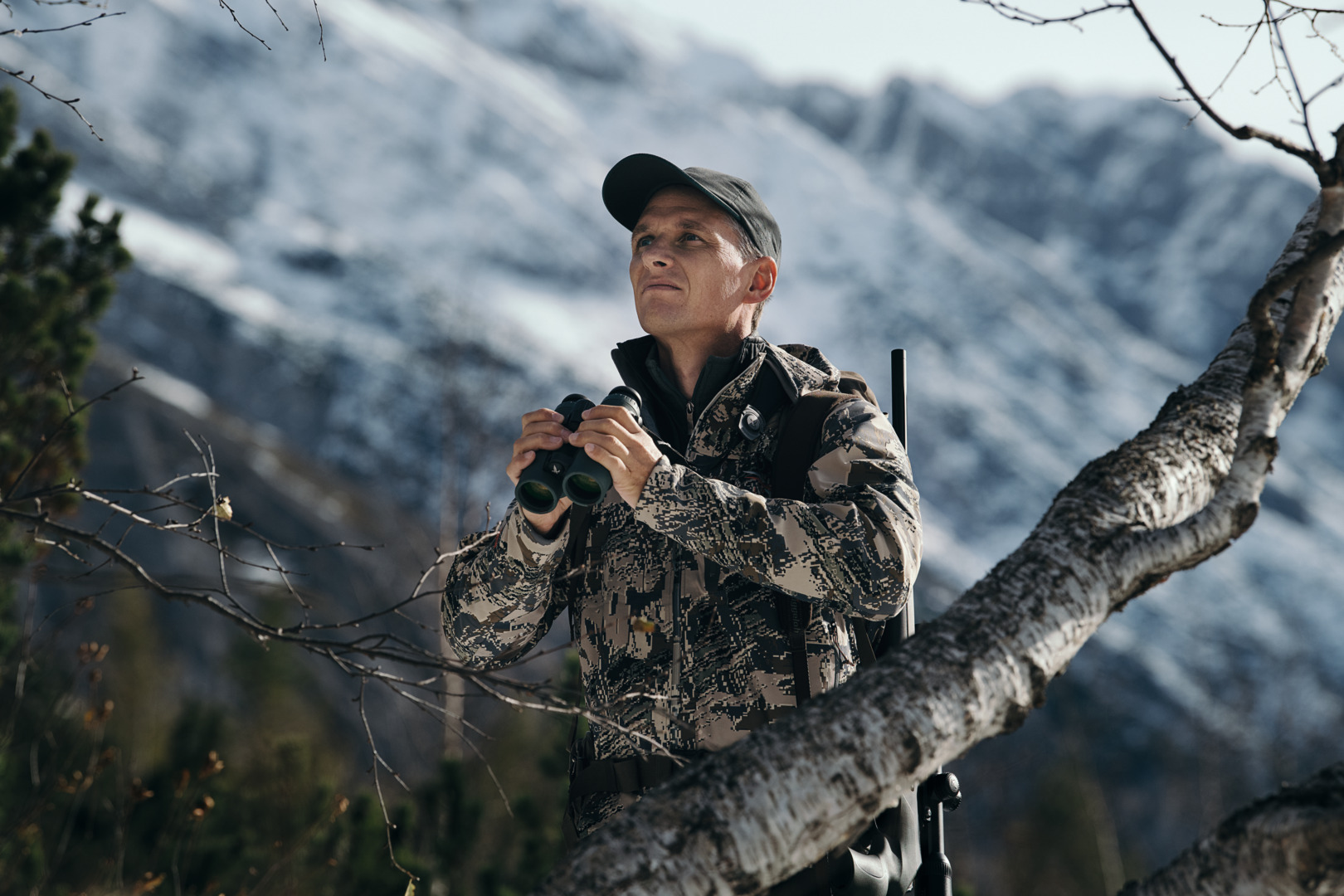The limitations of human eyesight restrict hunters’ ability to find and identify game. A wide range of hunting optics are therefore used to significantly enhance human vision. The sheer volume of optical devices available on the market can often make it difficult to form an overview.
What are binoculars?
Binoculars are universal hunting optics that are part of standard equipment when stalking.
A high-quality long-range optical device is therefore an essential tool for all hunting enthusiasts.
Binoculars have a fixed magnification of generally 8x or 10x.
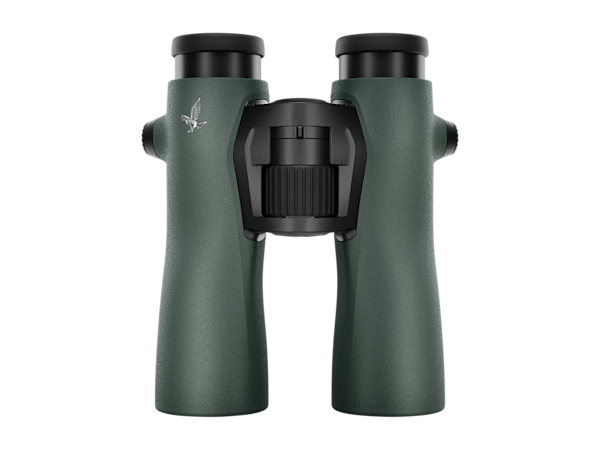
Binoculars consist of
several parts:
Carrying strap (not shown)
Twist-in eyecup
Diopter adjustment
Focusing wheel
Range measurement button (EL Range binoculars)
Ergonomic wrap-around grip
Rubber armoring
Basic binocular settings
To derive maximum benefit from the optical performance of the binoculars, they must be optimally adjusted to each user’s needs.
Three main settings are particularly important:
Interpupillary distance: the distance between the pupils, determined by the distance between the eyes
Eye relief: the individual distance between pupil/eyeglasses and the eyepiece lens
Diopter adjustment: the user’s individual diopter setting to compensate for any visual impairment in the right or left eye
Binoculars with range and angle measurement
Binoculars with an integrated rangefinder are now state of the art in modern long-range optics.
They make it easier to determine distances, in particular in unfamiliar or difficult terrain, and thus allow precise measurement of the distance of the game.
This measurement then allows you to choose the correct aiming point and set the ballistic aid correctly to fire a precise shot.
Modern rangefinders should also be able to show the angle to the target.
This allows the binoculars to identify the tilt angle which can be used to determine a second ballistics-related target distance.
The angle reduces the impact of gravitational pull on the ballistics trajectory.
In comparison with a horizontal shot, this results in a high shot.
The second – shorter – distance shows this change based on the angle in the field of view of the binoculars.
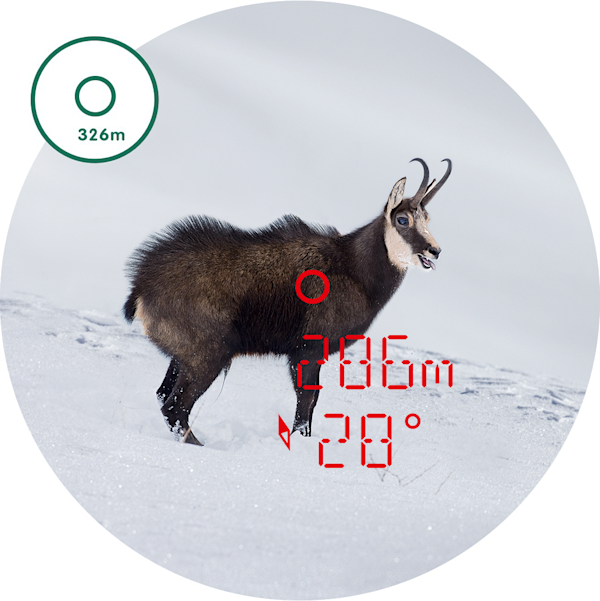
Range and
angle measurement
ensure that if a shot is made upward or downward, the correct distance is set.
HORIZONTAL SHOT
300 m (328 yds) = distance, 300 m (328 yds) = shooting distance
SHOOTING AT AN ANGLE
300 m (328 yds) = distance, 273 m (299 yds) = adjusted shooting distance
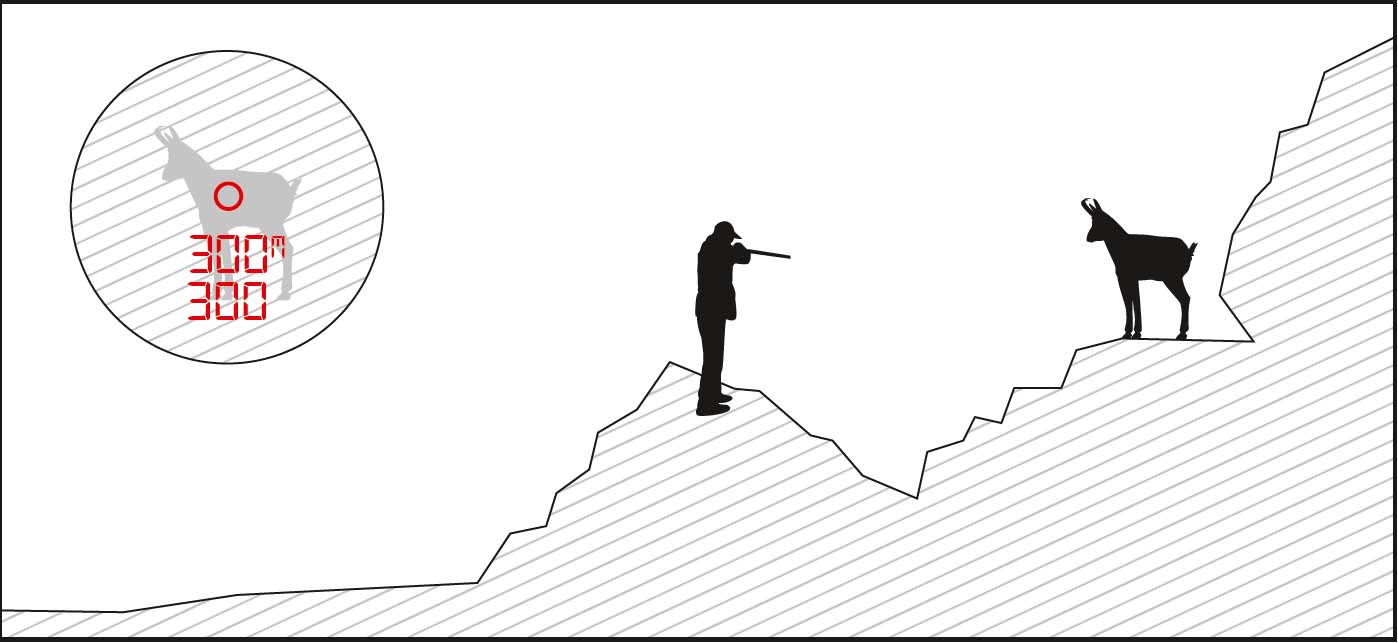
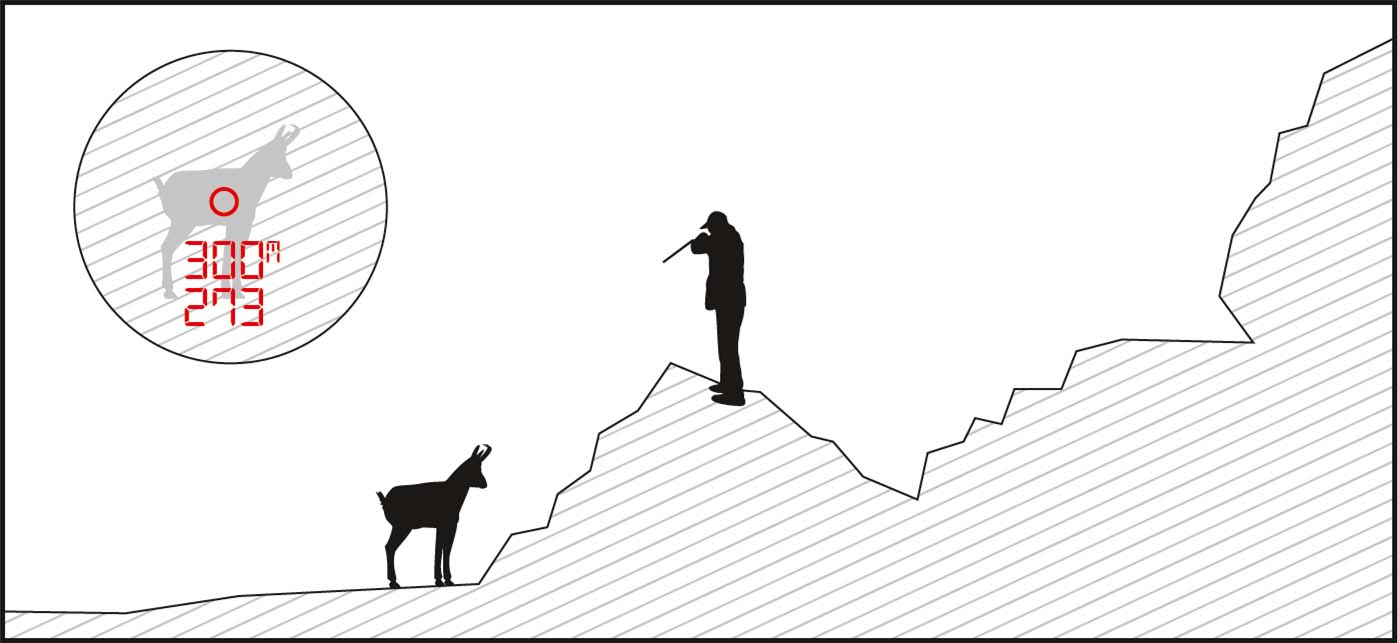
If you aim upward or downward, you will need to adjust the ballistics settings.
Modern rangefinders, such as the
EL Range TA
, not only show the angle-corrected distance, but also the number of clicks needed to adjust the reticle.
Which binoculars are right for me?
The right device for each type of hunting
There is a perfect companion for each hunting situation,
so it’s important to consider your preferred types of hunting to make sure you are properly equipped for the task at hand.

For challenging hunts in the mountains in full daylight, the best choice is small, compact binoculars (e.g. 8x32 ), thanks to their lighter weight.
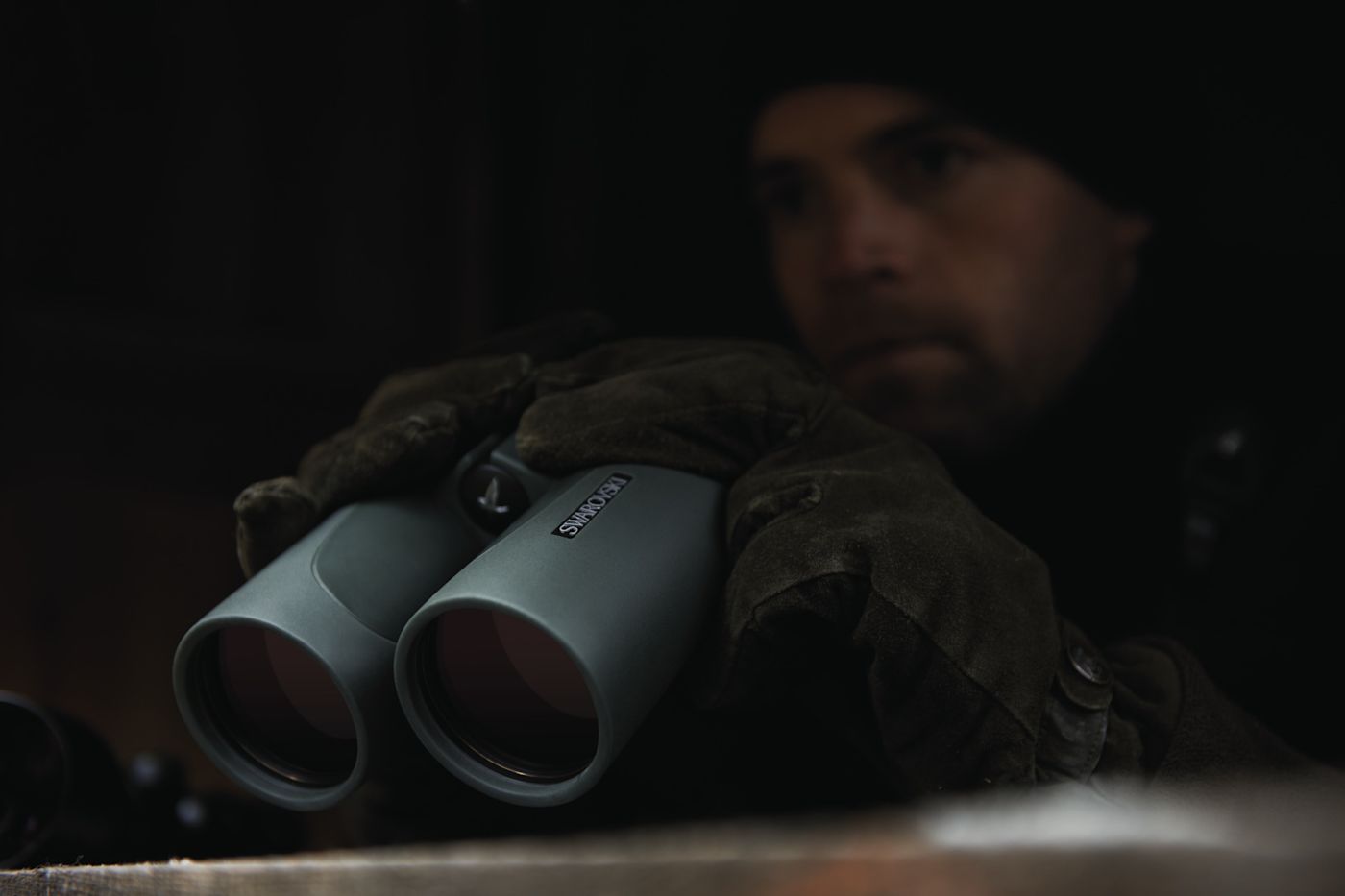
For hunting in a hide in twilight, twilight performance is particularly important. This would clearly be a situation for the 8x56 “night binoculars.”
The 8x42 model, for example, is recommended for universal use as it has a very large field of view, but also offers suitable magnification and twilight performance.
Quality is priceless
Quality should be a priority for hunting optics because hunting without high-quality optics is always associated with uncertainty, which makes things unnecessarily difficult. Many hunting enthusiasts find it difficult to reliably find and identify game. Good optics can be very helpful in this respect. They allow clearer identification of important details on the animal’s body, even in adverse light conditions. This ensures maximum enjoyment and safety for passionate hunters.
Ergonomics and user comfort are also important considerations when choosing hunting optics.
The more
intuitive
and
simple
the
handling
, the more you can concentrate on the real essentials:
the game
.

